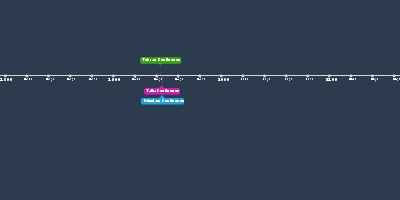1 sept 1968 año - Brezhnev Doctrine
Descripción:
Worried that Czechoslovakia was slipping from his grasp, the Soviet leader, Brezhnev, declared that the USSR would not allow the countries of Eastern Europe to reject communism, "even if it meant a third World War."This became known as the Brezhnev Doctrine.
The USSR feared liberal ideas would spread to other Eastern European states causing instability and threatening the security of the Soviet Union.
They feared growing trade links between Czechoslovakia and West Germany would lead to an increase in Western influence in Eastern Europe.
To the USSR it was important to hold onto Czechoslovakia which had the strongest industry in the Eastern bloc.
Faced with an invasion force of 500,000 troops from Warsaw Pact countries, the Czech government recognized the futility of resistance and appealed to the population to act with restraint.
They responded with what became known as Passive Resistance.
They employed peaceful protest tactics such as standing in front of tanks and offering flowers to soldiers.
The student activist, Jan Palach, burned himself to death in Prague’s Wenceslas Square.
There was no popular uprising.
Instead, the people refused to cooperate with the Soviet troops and jeered and chanted at the invaders, daubed walls with anti-Soviet slogans and painted out all signposts except those pointing to Moscow.
The Prague Spring quickly came to an end.
Dubček was arrested and taken to Moscow. The pro-Soviet, Gustáv Husák, was installed as the Czech leader to be Brezhnev’s servant.
Husák reversed Dubček’s reforms and Czechoslovakia remained a communist country inside the Warsaw Pact.
Añadido al timeline:
fecha:
1 sept 1968 año
Ahora mismo
~ 56 years ago
